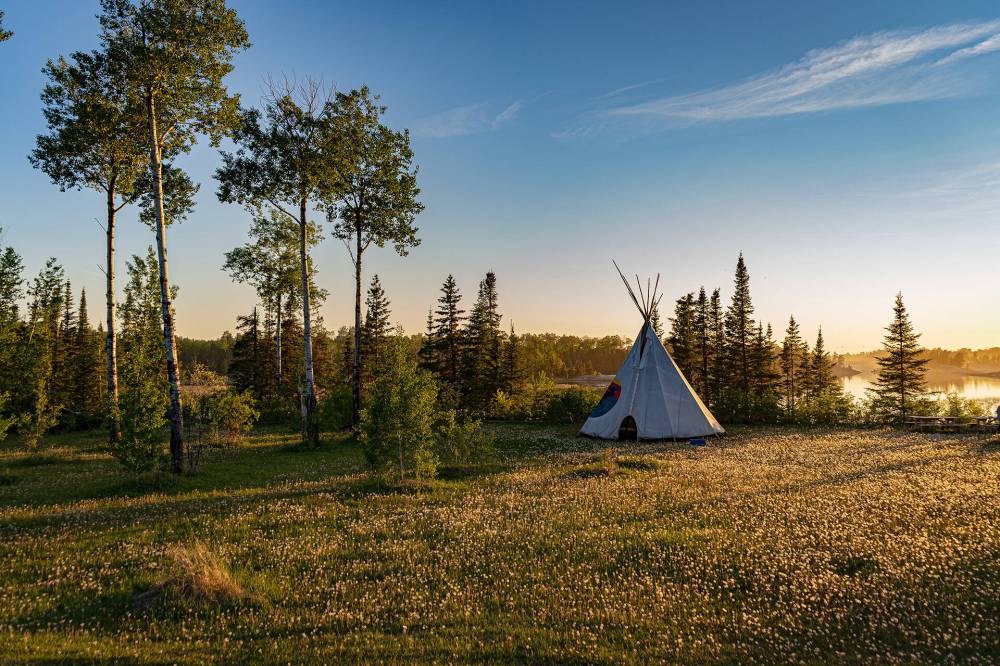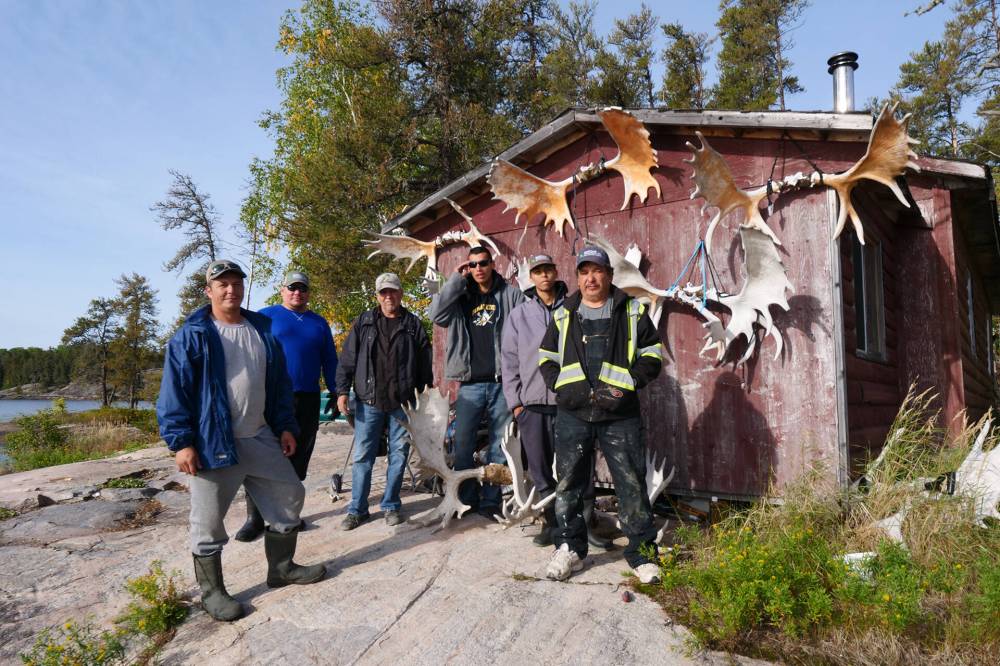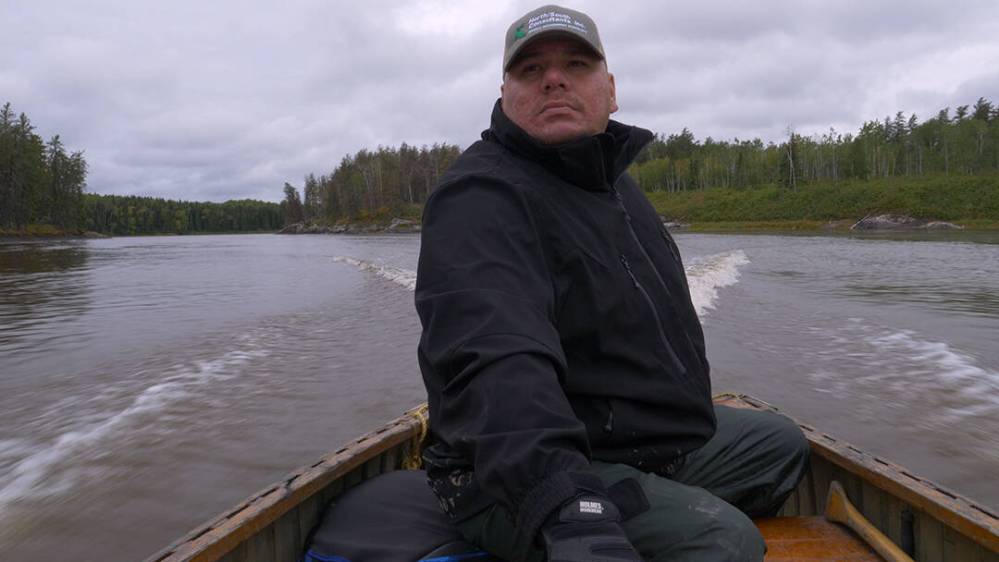Voices of the lake Documentary tells stories of Indigenous communities with spiritual and cultural connection to the water
Read this article for free:
or
Already have an account? Log in here »
To continue reading, please subscribe:
Monthly Digital Subscription
$0 for the first 4 weeks*
- Enjoy unlimited reading on winnipegfreepress.com
- Read the E-Edition, our digital replica newspaper
- Access News Break, our award-winning app
- Play interactive puzzles
*No charge for 4 weeks then price increases to the regular rate of $19.00 plus GST every four weeks. Offer available to new and qualified returning subscribers only. Cancel any time.
Monthly Digital Subscription
$4.75/week*
- Enjoy unlimited reading on winnipegfreepress.com
- Read the E-Edition, our digital replica newspaper
- Access News Break, our award-winning app
- Play interactive puzzles
*Billed as $19 plus GST every four weeks. Cancel any time.
To continue reading, please subscribe:
Add Free Press access to your Brandon Sun subscription for only an additional
$1 for the first 4 weeks*
*Your next subscription payment will increase by $1.00 and you will be charged $16.99 plus GST for four weeks. After four weeks, your payment will increase to $23.99 plus GST every four weeks.
Read unlimited articles for free today:
or
Already have an account? Log in here »
Hey there, time traveller!
This article was published 22/04/2022 (1327 days ago), so information in it may no longer be current.
“There’s still children coming that are not even here yet. That’s how far we need to think about the responsibilities we have as people that are part of the land.”
Thus begins Kevin Settee’s Poplar River documentary, a 10-minute film with narration by Sophia Rabliauskas.
The documentary is one of four in the National Film Board-funded series — The Lake Winnipeg Project — that tells the stories of the Anishinaabe, Cree and Métis communities who live on one of the world’s largest freshwater lakes. Settee’s documentary will be shown as part of Manitoba Museum’s Earth Day presentation, beginning today.

It follows Poplar River First Nation community members as they share their views on the importance and responsibilities of protecting their lands and waters for generations to come.
It’s a theme that Settee, a Winnipeg boy with far-reaching roots in the Fisher River Cree Nation community, carries throughout the series, amplifying the voices and views of the Indigenous communities who live, survive and thrive in the areas surrounding Lake Winnipeg.
“So many people depend on Lake Winnipeg. So many rely on it and I wanted to document the challenges people are facing. It’s about the the good things as well — the hard-working people who are fighting for the lands, protecting the lands and the water. It’s beautiful and also kind of threatened,” Settee says.
The first film in the series, Matheson Island, was shot during winter and the crew spent many hours outdoors in well-below-freezing temperatures to capture the tale of the Whiteways, who have fished for generations on the lake. But the low temperatures didn’t really bother Settee.
“The cold wasn’t a challenge for me. I love the cold, I love being out in the outdoors. I am from Matheson Island and Fisher River is my home reserve; my grandma is from there.
“Almost every shoot went so well. Everyone was on the same page, everyone knew the what was going to happen. We stayed in my cabin for a week. It was fun and exciting.”
However, it was Poplar River that presented the trickiest challenge, he confides.
“It was pretty tiring. We had to go up 13 rapids and it took seven hours to take us up the river, and we went through all of it. I mean it terms of an overall journey, Poplar River was amazing because not a lot of people get to go where we went. We felt very fortunate that the community allowed us to film there and document it.”
The most affecting of the four films, Camp Morningstar, tracks the experiences of the members of the sacred camp, which was erected in response to the proposal of a silica sand mine project by Canadian Premium Sand (CPS) in Hollow Water First Nation.
“I think the hope is that people will listen to the people affected when industry is trying to access our territories. We documented real people who are experiencing everything. The people who are on the rivers, and on the land and on the lake. That’s the whole point: they have important messages and they are so connected to the land and they know what’s going on and they see what’s happening,” Settee says.

The importance of Lake Winnipeg to these communities is reinforced throughout the documentaries.
As well as making their living from the vast body of water, the lake’s profound spiritual and cultural connection to the First Nations is one that cannot be ignored.
“It’s everything,” Settee says.
“Water is our lifeblood. If water is sick we get sick. The damage has already been done with Manitoba Hydro and its impact on the lake. And think about the farming as well — the chemicals and pesticides and fertilizer which accumulates in the lake. A lot of people take our land and water for granted. People are so disconnected with the land now; they don’t understand.”
Settee calls on the government to step in. He says the effects of eutrophication can already be felt in the lake, with algae blooms damaging the fish and wildlife in the water.
“The lake health needs to be considered. We need government policies. The government has opportunities to build plants to help slow down the chemicals going into the lake and they are not doing that. I don’t think we are doing enough. “
The films were made together with the communities featured, Settee says. Members had full control over the story and created it alongside the director and crew. Settee calls it a community project, one from which his voice is notably absent.
“Yeah, that was intentional. I am not local so it’s not necessary for me to be projecting into the communities. I have friends and family who live there but I don’t live there and so I didn’t really see the importance of inserting myself in there. It’s the style of documentary as well — cinéma vérité — you follow people and you let them speak.”
Nowhere is this more evident than in the Fisher River episode, which was shot at the height of the pandemic. Owing to restrictions, outsiders were not allowed into the area, and so Settee filmed everything himself.
“I was the only one who was allowed to go and I convinced the NFB to let me shoot it 100 per cent by myself. When you are working by yourself, it can be more intimate and people are less intimidated. That comes across in the finished film; there’s an intimacy to Fisher River, being inside the homes and the bedrooms and the spaces.”
The 31-year-old father of a son, 7, and a daughter, 1, was in elementary school when he first picked up a camera. He credits his grandmother for sparking the interest he has in documenting stories.
“My granny was a photographer, and that’s how I got introduced to photography. She would take pics of me and my cousins all over the place, on the land. As I got older I started buying the disposable cameras and started taking the same kind of pictures she was taking.”

As Settee got older he started watching documentaries and swiftly decided this was his calling: to show his people in the best light possible.
“I make documentaries because I think my people are beautiful. We have so many amazing people whose stories need to be heard. Our people hold the answers to a lot of the problems in this world because we are so connected to the land. I think Indigenous people are very special.
“It’s not just about Indigenous filmmaking or even about money. It’s about telling proper stories. So many times our stories are misrepresented and showed in a negative light. These stories here have hope. I’m showing a balance between hardship and hope.”
The Lake Winnipeg Project: Poplar River will be shown at Winnipeg Gallery Theatre in the Manitoba Museum as part of the museum’s Earth Day Trail from today to to Sunday. Admission is included in the ticket price and there will be back-to-back screenings on all three days.

Our newsroom depends on a growing audience of readers to power our journalism. If you are not a paid reader, please consider becoming a subscriber.
Our newsroom depends on its audience of readers to power our journalism. Thank you for your support.
